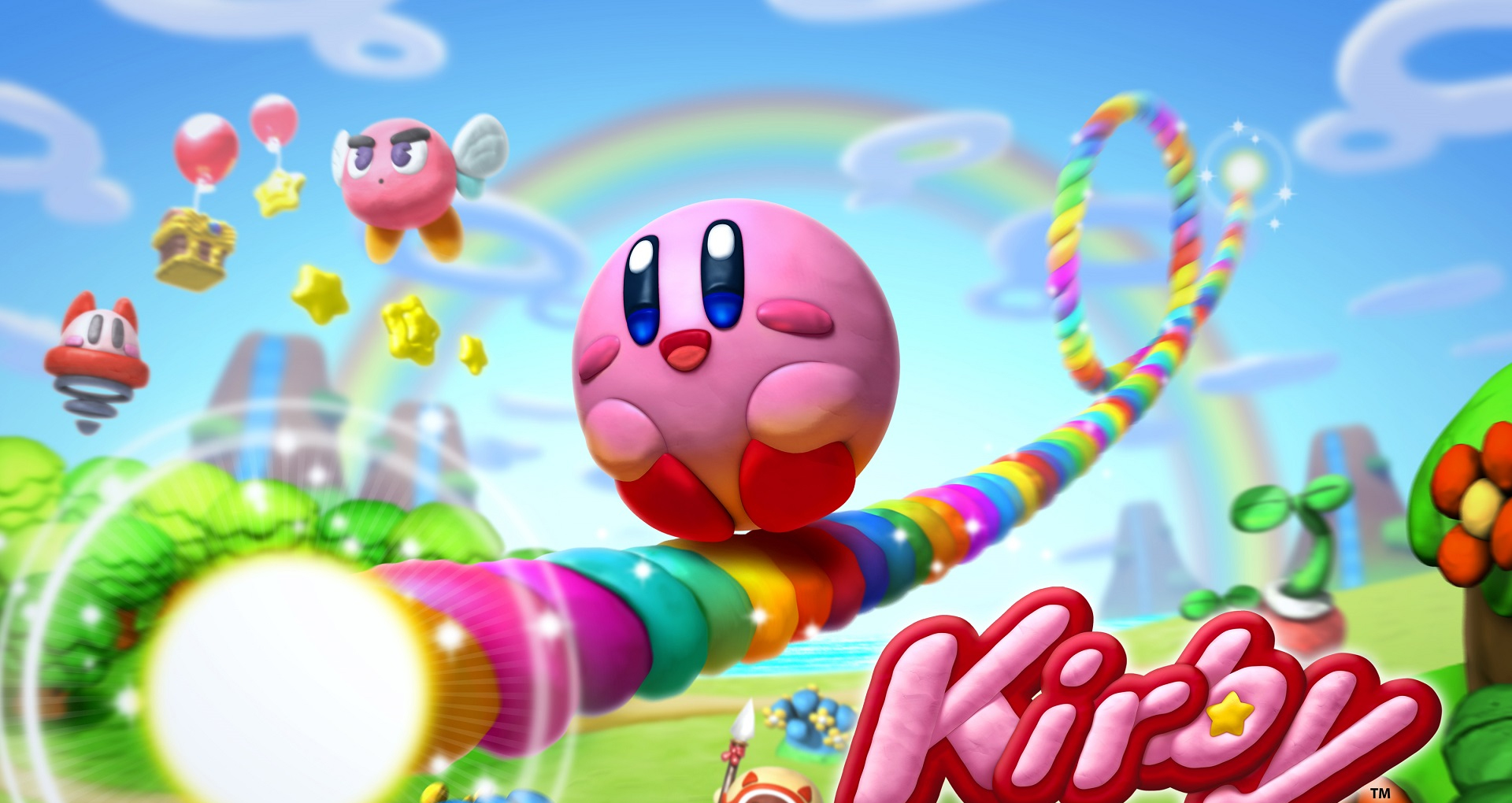GamesRadar+ Verdict
With a handmade look, and a different approach to platforming, Rainbow Curse is one of Kirby’s strongest spin-offs, and one of the best uses of the Gamepad to date.
Pros
- +
It makes great use of the GamePad
- +
It has a warm
- +
adorable art style
- +
It brings some much-needed challenge to the Kirby series
Cons
- -
Some terribly average boss battles
- -
Then those boss battles are repeated
- -
A little on the short side
Why you can trust GamesRadar+
The Wii U’s Gamepad has a lot of potential, but too few titles legitimately take advantage of the tablet/controller combo. That’s why Kirby and the Rainbow Curse (or Kirby and the Rainbow Paintbrush in Europe) feels so refreshing - even if the unique puzzle-platformer isn’t all that dense, the constant use of the touch screen to navigate Kirby takes really takes advantage of the console’s underused talents.
The follow-up to forgotten DS gem Kirby and the Canvas Curse, Rainbow Curse sees Kirby trade in his standard sidescroller moves to roll around in a ball for the majority of the game. Instead of directly controlling the rosy sphere, you guide him by drawing line after line on the screen with the stylus. Safely navigating Kirby through the 2D world by tracing a trail on the touch screen is a nice change of pace for the series, and is much more mentally stimulating than it appears.

Sketching Kirby’s path from one platform to another seems simple, but not when you have to change his direction twice, then tap on the rosy puffball at just the right time to attack an oncoming enemy. Outside of the occasional autoscrolling stages, the well designed levels need a mix of timing and logic that’s more demanding than the friendly pastel settings imply. It all requires precision that’s supported by the game’s well implemented controls, as sketched lines match to your freehand doodles precisely while still being just forgiving enough to not feel punishing.
Rainbow Curse’s gameplay stays fresh thanks to a large helping of specialty stages sprinkled throughout the game. Kirby transforms into a rocket, submarine, and tank, and while the controls don’t really change, these vehicles allow the game to shift genres, becoming an autoscrolling shmup on occasion. The tank is the most fun of the three, with excited, rapid taps on the screen blasting its cannon in every possible direction. The sub and rocket both suffer from rougher controls, but still make for nice diversions that, thankfully, don’t overstay their welcome.

The unique visuals energize this Kirby outing just as much as the gameplay. Kirby’s world is as vibrant as before, but it's all been given a clay makeover. Like a stop-motion film come to life, the claymation vibe that bestows a handmade aesthetic, down to the thumbprints on Kirby’s face. You know the usual polygons and textures are all humming underneath, but the graphics are so warm and inviting that it’s easy to lose yourself in the festivities.
Not that there aren’t some all-too-familiar problems to be found in Rainbow Curse. The challenge gets a little worn, particularly in the boss battles. More than one boss fight gets reused later in the game, and it’s more frustrating every time it happens. These enemies aren’t particularly complex the first time, and battling a reskinned version of them only makes their deficiencies more obvious. The game has such diverse stages that it’s a shame half the areas are capped off with decidedly average repetition.
Overall Rainbow Curse is on the short side, with about seven worlds that take you on the expected tour of underwater, ice, and lava stages. But that’s ultimately to the game’s benefit. Unlike the bosses, the regular stages don’t feel padded or stretched too thin. And as bog standard as the locales may be, the clay-themed graphics at least make the overused settings feel fresher.

And there are some decent extras that extend your play-time, provided you have some Nintendo-themed plastic and/or friends that’ll join you on the couch. Rainbow Curse’s approach to multiplayer follows the lead of the New Super Mario games, only less annoying. Every non-Kirby character works to support player one by fighting enemies or even carrying Kirby to hard to reach areas. They’re all directly controlled, while Kirby is still manipulated on the Gamepad, a cute style of asymmetrical teamwork that the Wii U specializes in. Rainbow Curse is at its best solo, but it’s not a bad party game when friends join in.
The amiibo integration leads the way with the more gimmicky features. Touching any of the Kirby series amiibo to the Gamepad does abilities like extra special attacks from Meta Knight or more hit points with King Dedede, both of which are a little too useful and end up hurting the game’s balance. As for the extra modes, the unlockable time trials and limited extra challenges are about as shallow as the amiibo integration. And neither offers much more than a brief distraction from the core game.

Kirby and the Rainbow Curse is one of the series’ better experiments, with warm, lively visuals working in tandem with a dynamic, unusual approach to platforming. It’s no epic, and the extras are a little on the shallow side, but it’s great while it lasts. The Wii U is in desperate need for strong content and justification for its extravagant controller, and Rainbow Curse provides both.

More info
| Genre | Platformer |
| Description | Kirby must battle evil once again in this sequel to Kirby and the Canvas Curse. |
| Platform | "Wii U" |
| US censor rating | "Everyone" |
| UK censor rating | "" |
| Release date | 1 January 1970 (US), 1 January 1970 (UK) |
Henry Gilbert is a former GamesRadar+ Editor, having spent seven years at the site helping to navigate our readers through the PS3 and Xbox 360 generation. Henry is now following another passion of his besides video games, working as the producer and podcast cohost of the popular Talking Simpsons and What a Cartoon podcasts.

As Dragon Age: The Veilguard director leaves and studio closure rumors surface, Mass Effect 5 director appears to hint the RPG is just fine: "Every week is a good week at work for me"

The First Berserker: Khazan could be the action RPG that gets me hyped for a 3D gaming monitor comeback, and it's thanks to Samsung
Charlie Cox isn't kidding – the Daredevil star thinks he'd have "a lot of fun" playing DC's Joker
Most Popular

